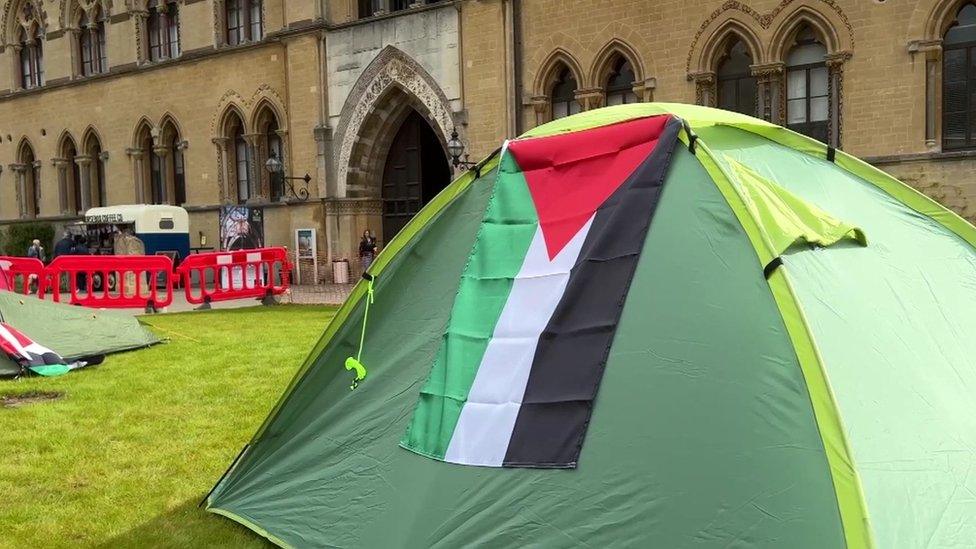Fencing erected around student Gaza protesters
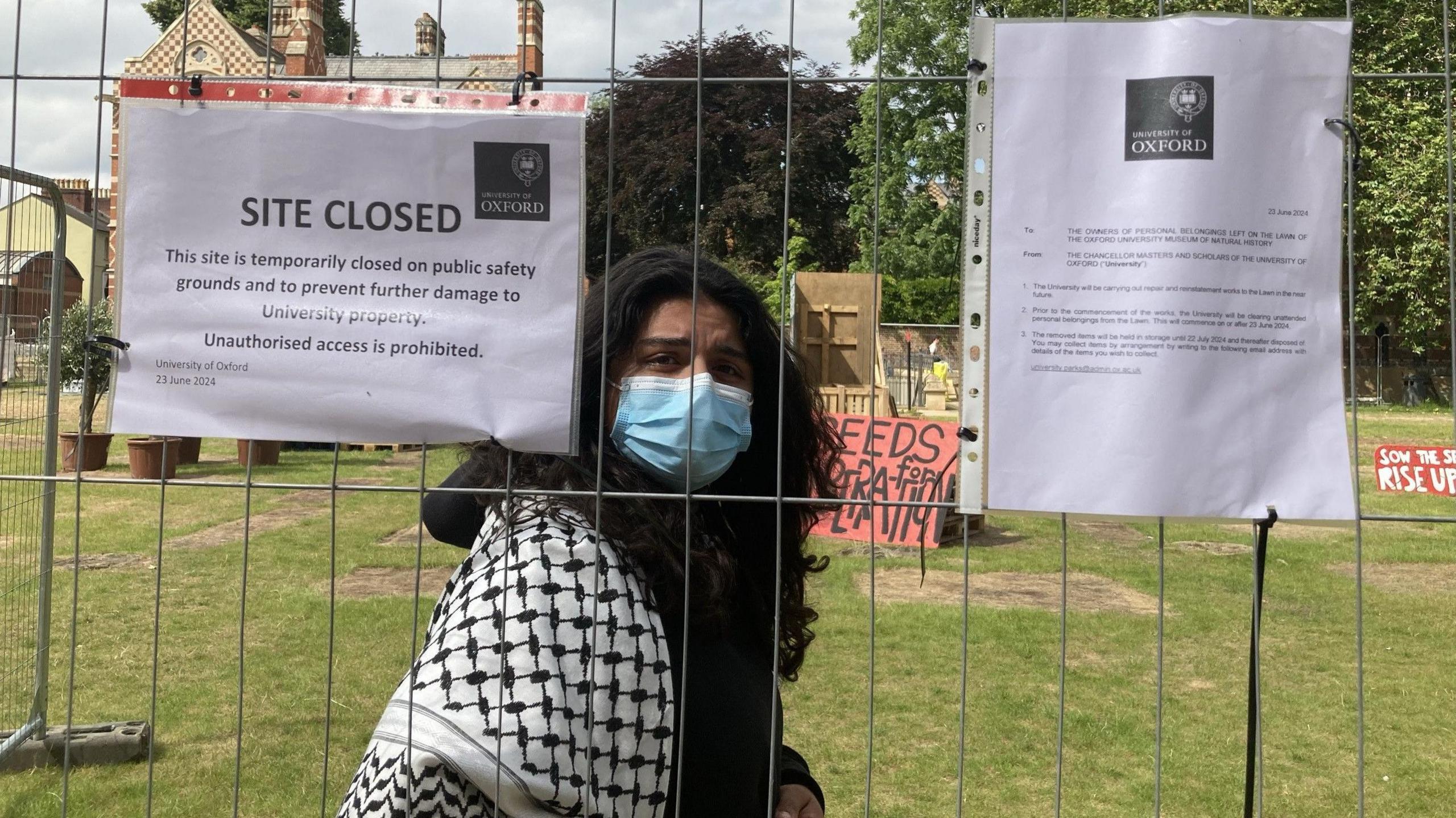
A protester said the new fences were a "really concerning act of suppression"
- Published
A metal fence has been erected around an Oxford student encampment protesting against the war in Gaza.
On 6 May, protest camps were set up outside the Museum of Natural History in Oxford and in Cambridge.
Oxford University said it had fenced off the area "in preparation for returning it to public use" and to "avoid further damage to the lawn".
Oxford Action for Palestine (OA4P) said it was "deeply troubled" by a "blatant attempt to intimidate and shut down peaceful protest".
Israel launched a military campaign in Gaza to destroy Hamas in response to the group's cross-border attack on southern Israel on 7 October, during which about 1,200 people were killed and 252 others were taken hostage.
More than 37,590 people have been killed in Gaza since then, according to the Hamas-run health ministry.
'Suppression'
The new fencing went up in front of the museum on Sunday morning at about 07:00 BST.
Protesters said the university "capitalised" on a "moment of transition" while they were off-site preparing to turn the space into a community garden.
A spokeswoman for OA4P told the BBC: "This is a really concerning act of suppression and the community is very upset about it."
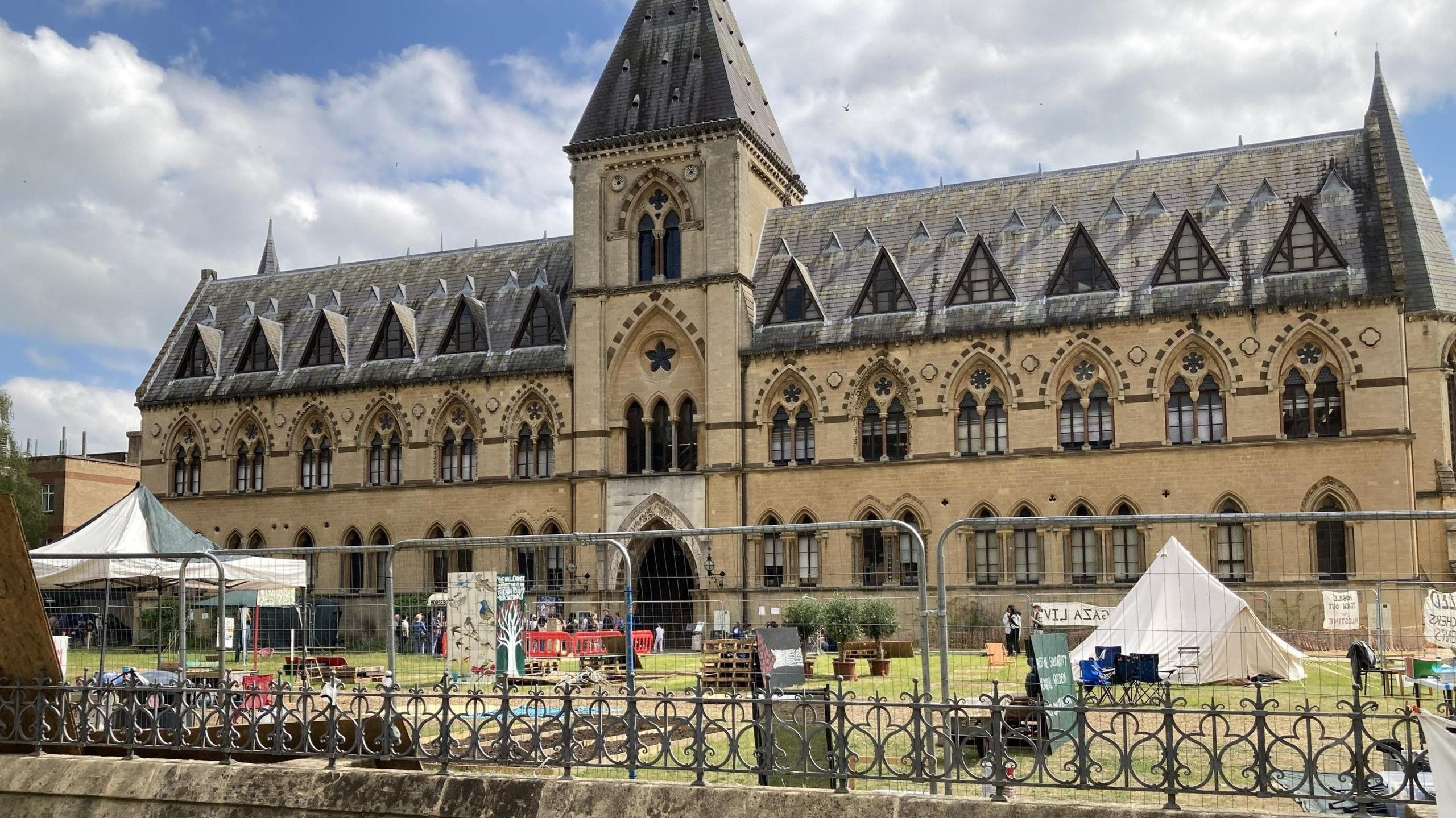
The university said it had fenced off the area "in preparation for returning it to public use"
She called the university's concerns about the lawn misleading "because we care deeply about the space".
But she accused the university of "spending more time talking about the health of grass and of the lawn than of 40,000 dead Palestinians".
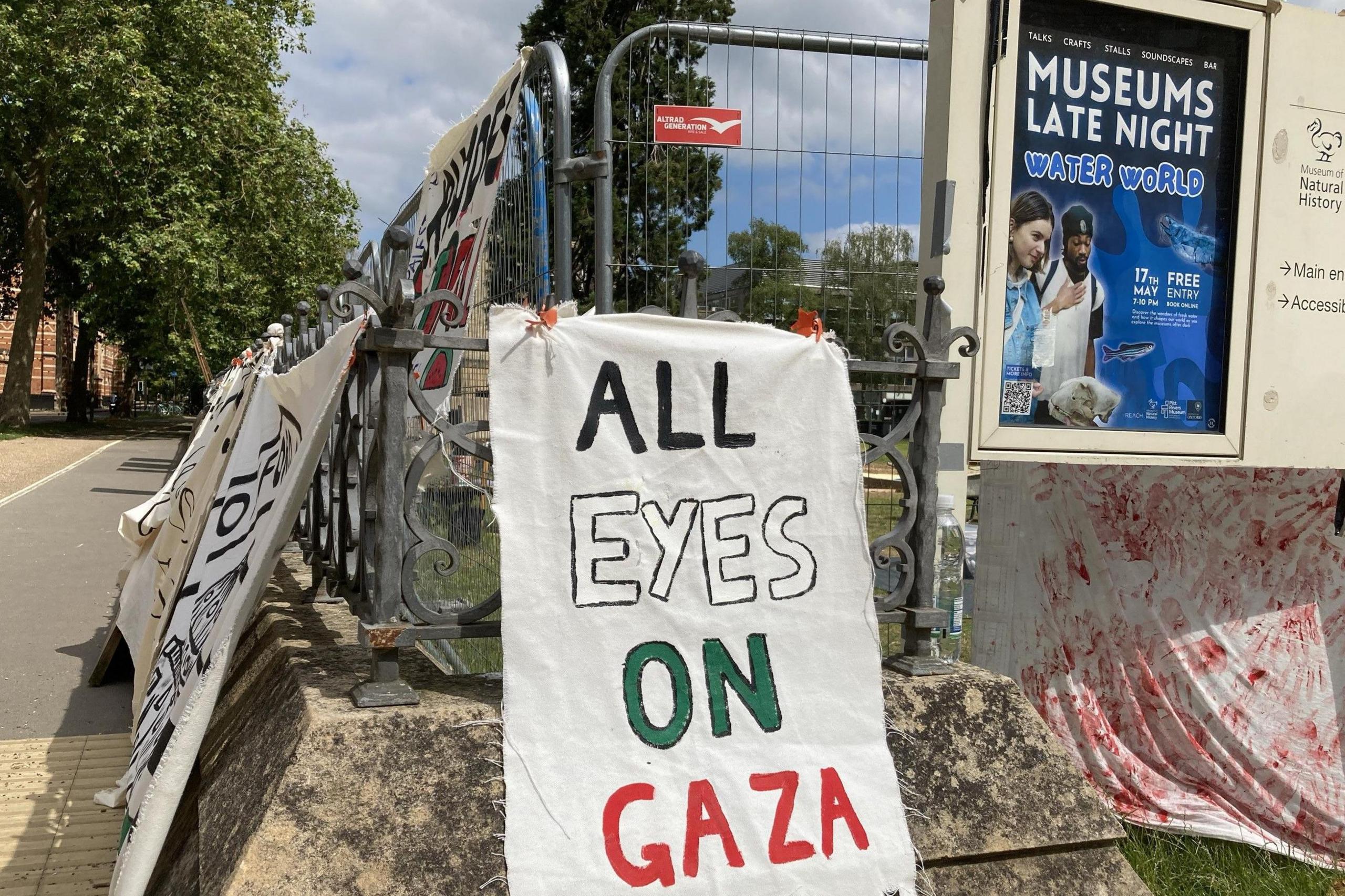
Protesters have called for the university to overhaul its investment policy
The university statement said the lawn was an "important space" for "visitors to enjoy and relax in", and it wanted to "remove any hazards to the public".
It was also aiming to prevent damage to its irrigation system, its "protective membrane", and the museum collections beneath, it claimed.
The land was for "everyone at the university and our visitors", it explained, and it was taking steps "in the interest of public safety and preserving our own property and collections".
It said before the planned gardening event campaigners were "informed on several occasions" that it could not go ahead, and so "urgent action" was required.
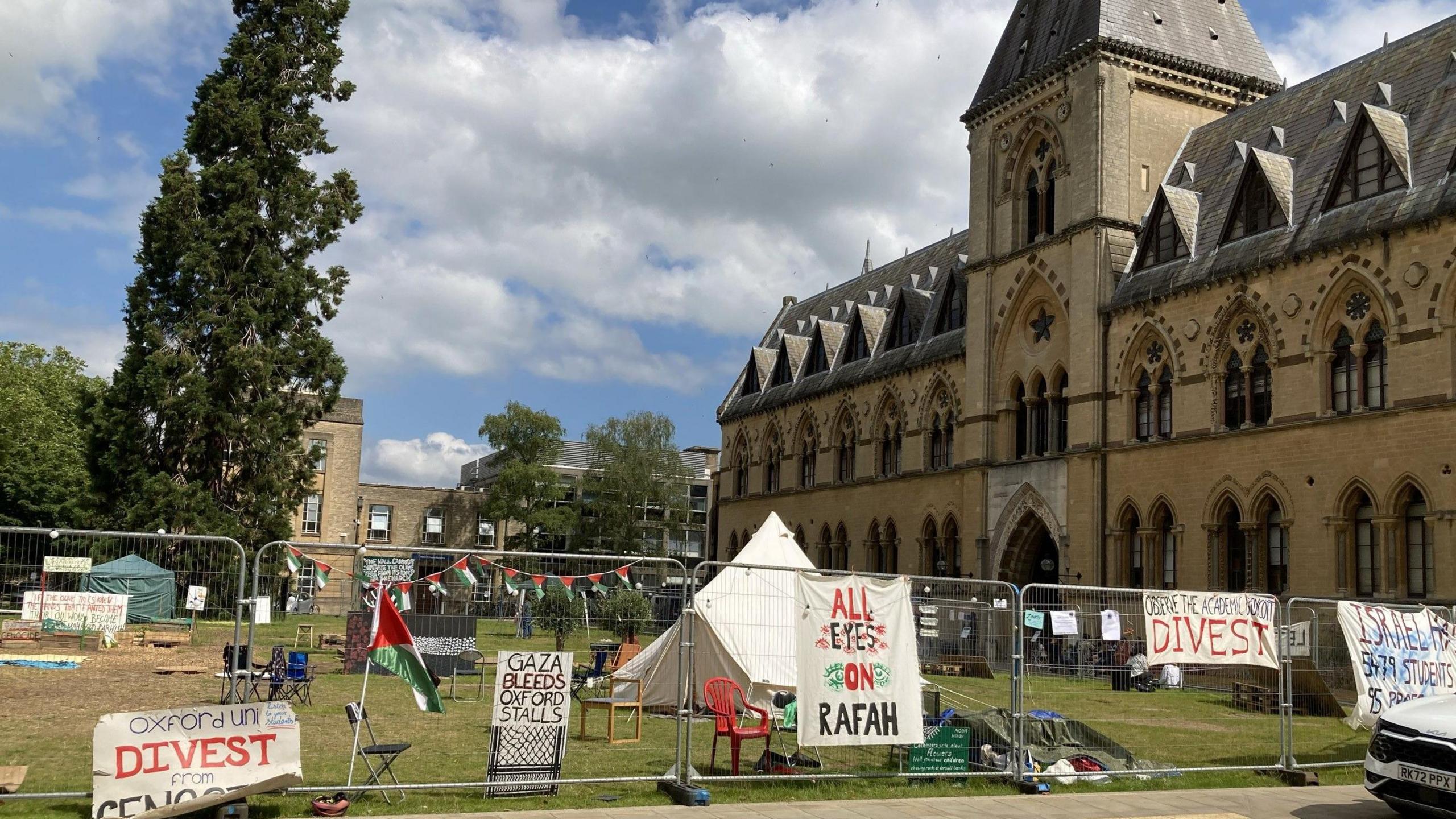
The protest camp was set up on the lawn outside the museum on 6 May
But OA4P insisted the measures were taken "with no prior communication".
It called on the university community to "demand the reversal of this draconian shutdown of peaceful protest".
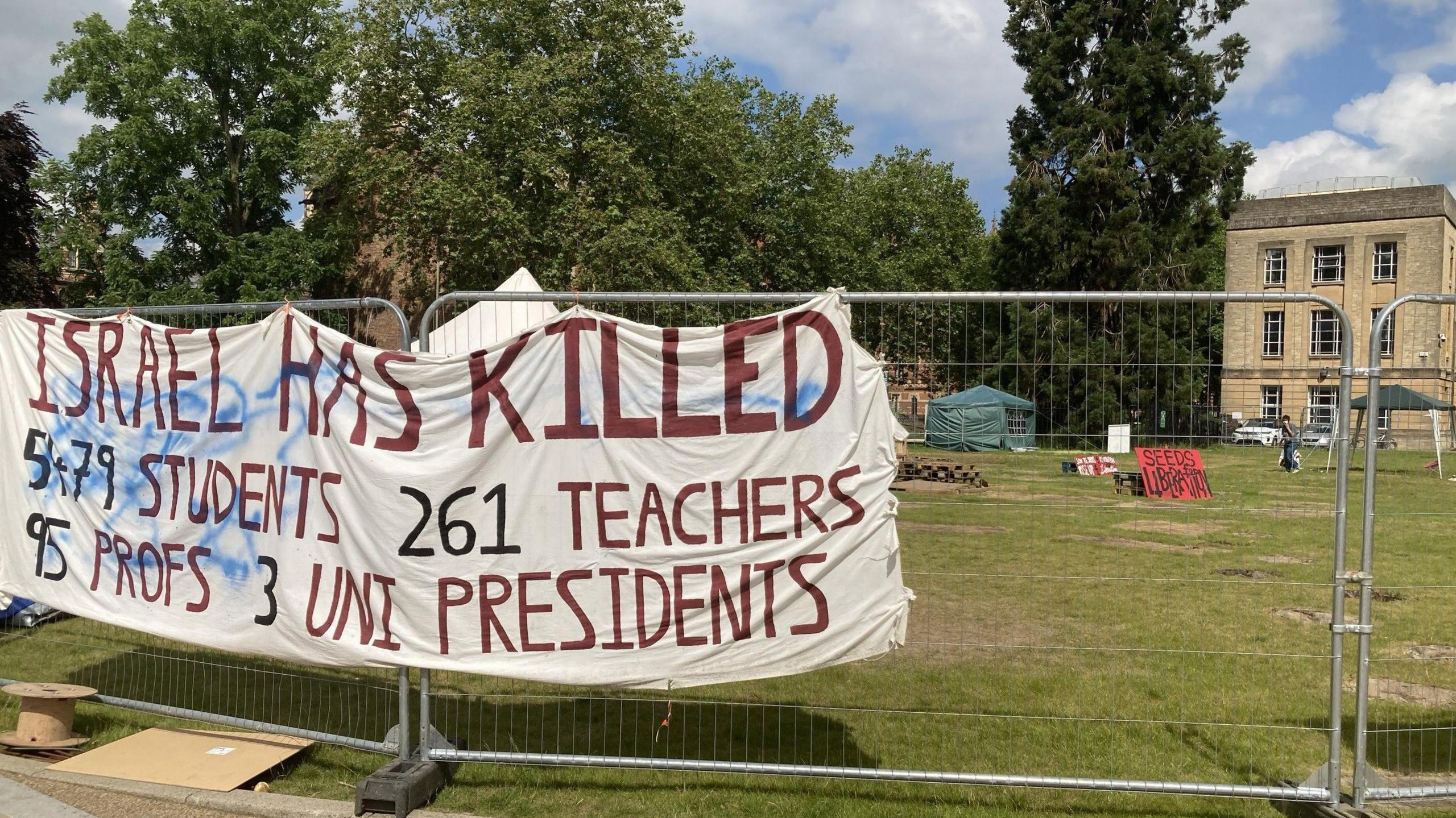
The university has previously expressed "profound sympathy for those suffering in Gaza, Israel, and the West Bank"
Protesters have called for the university to disclose all finances and overhaul university investment policy.
The institution has said it respects their "right to freedom of expression in the form of peaceful protests" and expressed "profound sympathy for those suffering in Gaza, Israel, and the West Bank".
OA4P also started a sit-in at university offices in Wellington Square on 23 May, leading to several arrests.
Other pro-Palestine demonstrators forced the university to cancel some of its students' end of year exams after buildings were occupied.
Follow BBC South on Facebook, external, Twitter, external, or Instagram, external. Send your story ideas to south.newsonline@bbc.co.uk, external.
Related topics
- Published19 June 2024
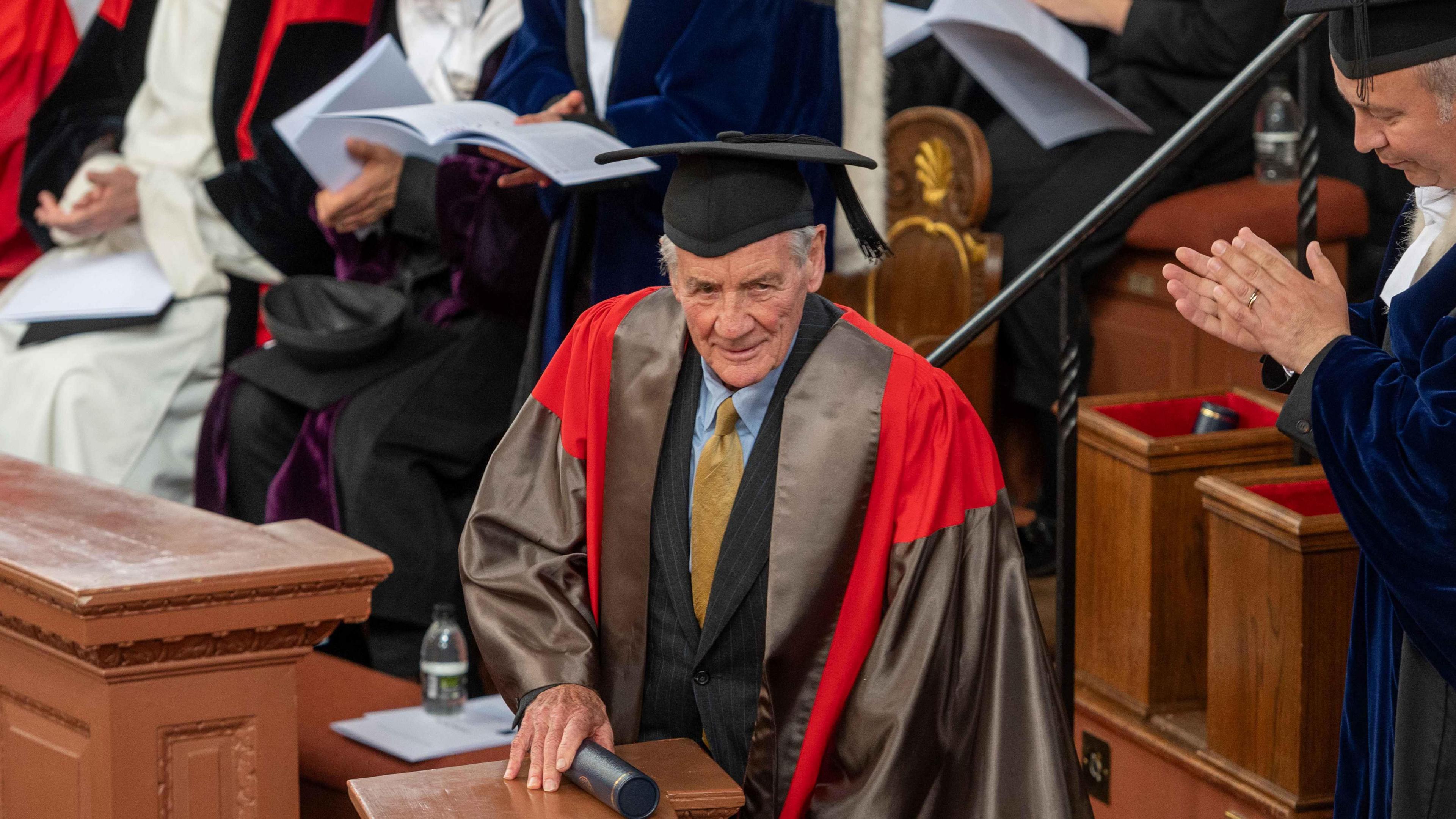
- Published13 June 2024
- Published24 May 2024
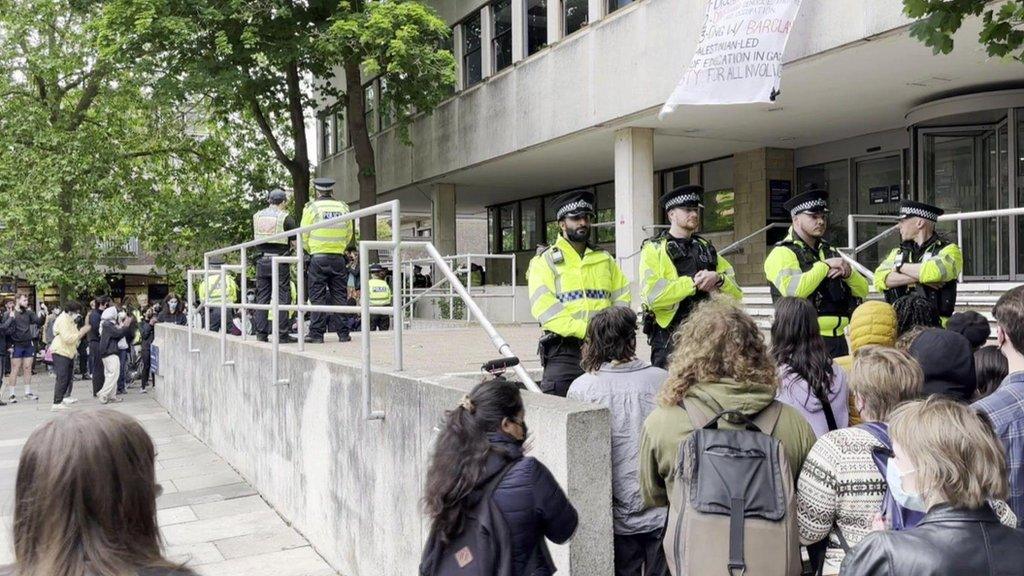
- Published23 May 2024
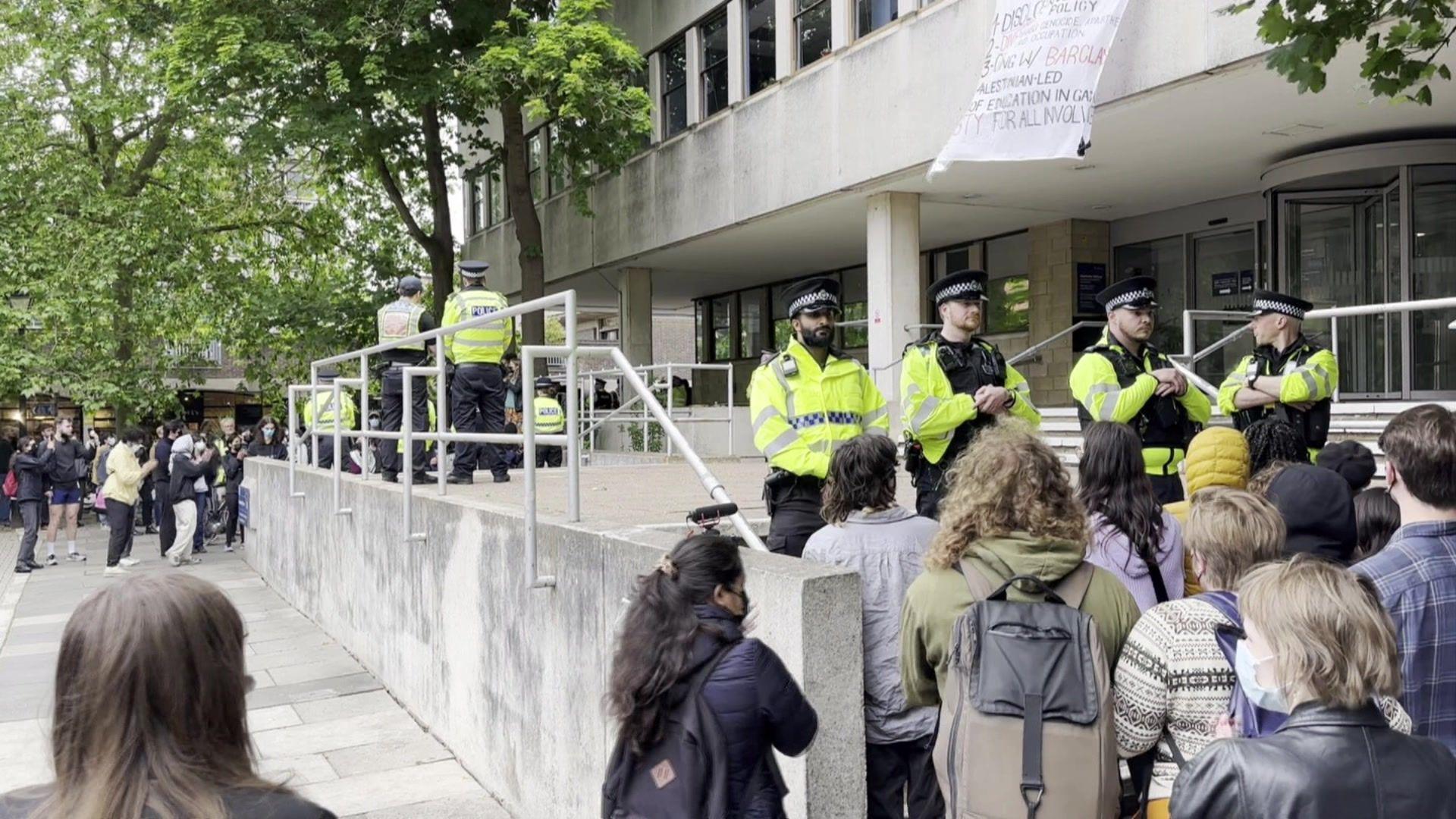
- Published15 May 2024
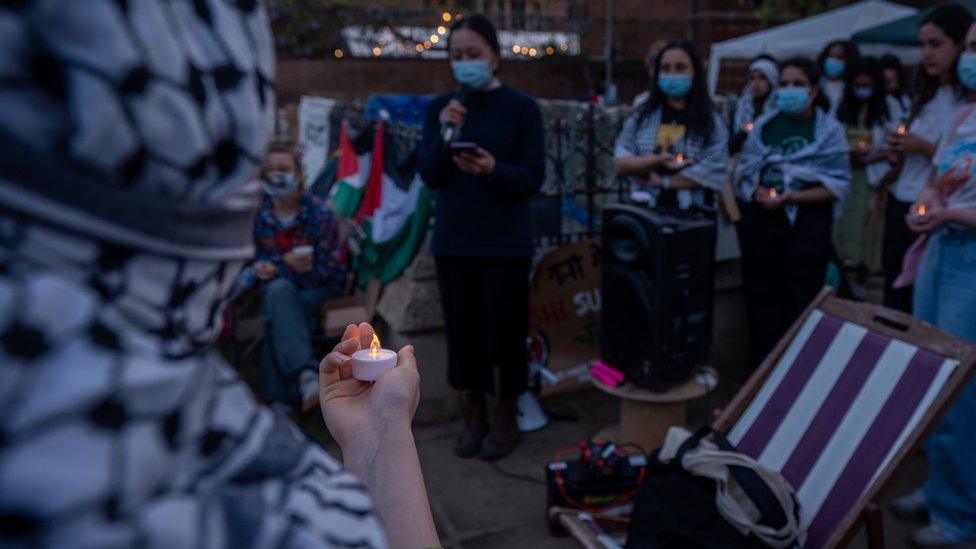
- Published10 May 2024
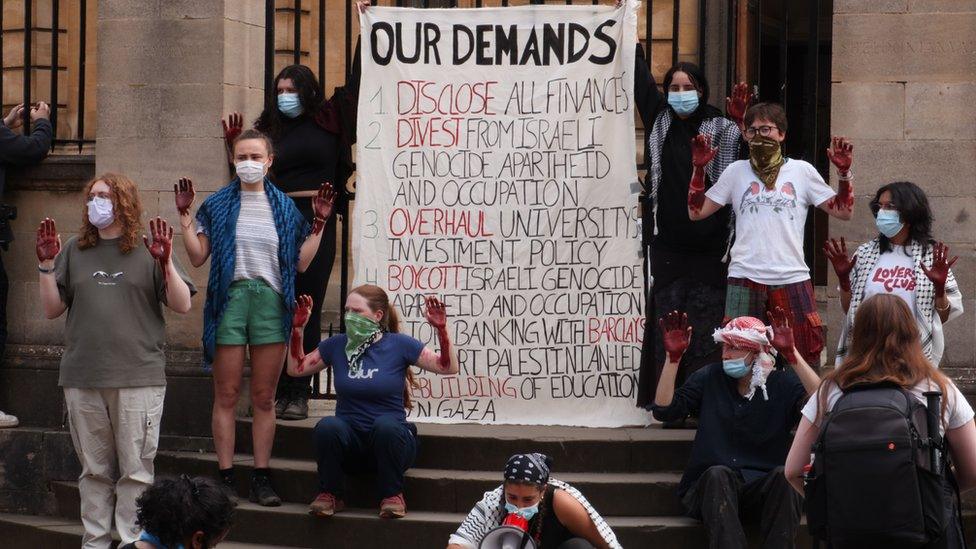
- Published6 May 2024
